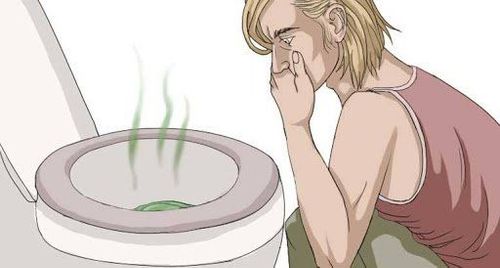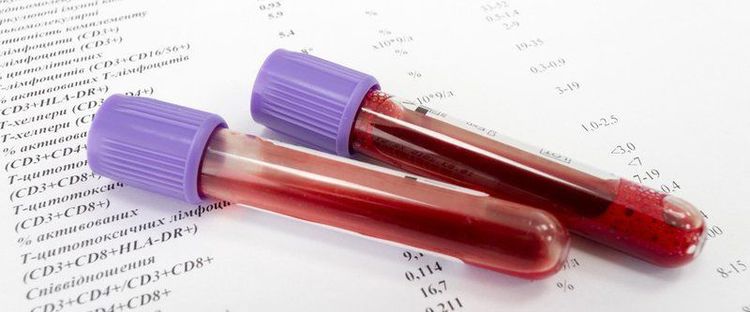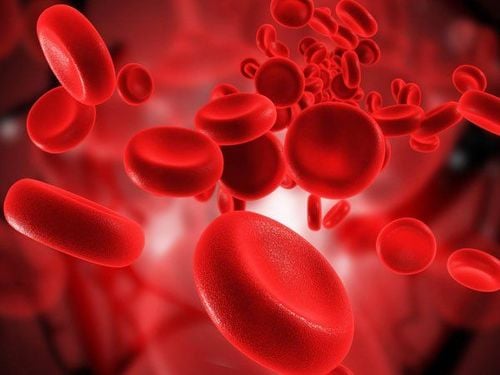This is an automatically translated article.
Posted by Master, Doctor Mai Vien Phuong - Department of Examination & Internal Medicine - Vinmec Central Park International General Hospital
An estimated 10-15% of American adults have irritable bowel syndrome. However, only half of them receive a diagnosis and seek medical attention. A proper diagnosis from a medical professional is important for obtaining appropriate treatment and palliation.
IBS is a collection of symptoms, not a well-defined physical condition. Symptoms vary from person to person. This makes IBS difficult to diagnose. To help make an accurate diagnosis, your doctor may use a variety of tests.
1. Learn how to recognize the most common symptoms of Irritable Bowel Syndrome.
Abdominal pain
One of the most common symptoms of Irritable Bowel Syndrome is abdominal discomfort or pain. You may have stomach cramps after eating. It may be better after you have a bowel movement.
Experts from the National Institute of Diabetes, Digestive and Kidney Diseases say this pain or discomfort can be caused by oversensitive nerves in your intestines. If you have Irritable Bowel Syndrome, your brain may process pain signals from the gut differently than usual.
Bloating in your belly
If your stomach feels bloated all the time, it could be a sign of Irritable Bowel Syndrome. Fullness makes your midsection feel tight and full. Your abdomen may also be visibly swollen.
Bloating or bloating
Irritable bowel syndrome often causes bloating, or gas. Certain foods and drinks can make this symptom worse. For example, you may experience bloating after eating:
Beans Cabbage Any type of dairy product Fatty foods, such as tallow, cheese and deep-fried products Drinks that contain caffeine , alcohol or artificial sweeteners Eating foods rich in fiber can also cause bloating. On the other hand, fiber can help relieve some symptoms of Irritable Bowel Syndrome, including constipation. If your doctor recommends that you eat more fiber, gradually increase your fiber intake. This can help reduce the risk of gas and bloating.
Changes to your stool
Irritable bowel syndrome can cause changes to your bowel and stool habits, including constipation and diarrhea. It can also cause the appearance of mucus in your stool. You may have diarrhea or constipation or they may be interchangeable.

Constipation
You may have constipation related to Irritable Bowel Syndrome (Constipation Irritable Bowel Syndrome) if you:
Need to strain to have a bowel movement Passing stools less than four times per week Passing hard stools , lumpy and dry Constipation can be very uncomfortable. Chronic constipation can lead to complications, such as hemorrhoids, anal fissures, and stools.
Diarrhea
If you have loose stools several times a day, you may have diarrhea associated with Irritable Bowel Syndrome if. It can also cause a sense of urgency when you need to have a bowel movement.
Mucus in your stool
Mucus in your stool is another potential sign of Irritable Bowel Syndrome. Mucus is a clear liquid that protects and coats the tissues in your digestive tract. With irritable bowel syndrome, you may pass mucus, along with stool.
2. How will your doctor diagnose your illness?
Your doctor will start by compiling your complete medical history and performing a physical exam. To learn more about your health, they will ask you questions about:
Possible stressors in your life Past or present infections Past or present symptoms at Family history of this condition Medicines that can make your symptoms worse It is important to let your doctor know when your symptoms started and how often you have them. This will help identify patterns between your behavior and discomfort.
Diagnostic tests
Your doctor may order a variety of diagnostic tests if you are experiencing severe or additional symptoms such as weight loss, anemia, and blood in your stools. While these tests are not required to diagnose IBS, they can rule out other potentially serious conditions.
Blood tests
Blood tests can help rule out celiac disease. This is a wheat allergy that causes symptoms similar to IBS such as cramping and intestinal pain.

Stool test
A stool sample can check for the presence of blood or parasites, which may indicate an infection.
Evaluation of the lower digestive tract
For this test, your doctor uses X-ray images of your intestines to check for possible blockages. Before the test, your doctor will insert baryt (a contrast medium) into your intestines through a tube in your anus. Baryt is a liquid that makes the intestines more visible on an X-ray.
You are usually asked to follow a liquid diet and enema before the exam. Sedatives can help you relax during surgery. You may experience discomfort and discolored stools for a day or two after the exam.
Flexible colonoscopy or colonoscopy
These diagnostic procedures allow your doctor to view your rectum and colon with a small camera attached to a thin tube. The tube is inserted gently into your anus. As with colonic tests, this diagnostic procedure usually requires a liquid diet and enema prior to the examination. Taking a sedative may also be an option.
Your doctor may recommend a colonoscopy to rule out colon cancer if you are in a certain risk group based on age, race, or family history.
CT Scan of the abdomen and pelvis
A CT scan of the abdomen and pelvis can help rule out other possible causes of your discomfort, such as pancreas or gallbladder problems.
Lactose intolerance tests
If you cannot digest dairy products, you may experience symptoms similar to IBS, such as bloating, gas, and diarrhea. Lactose intolerance can be diagnosed through a breath test or by eliminating dairy products from your diet for several weeks.
Treatment options
Doctors advise, if you experience these symptoms at least three times a month for three months, you may have irritable bowel syndrome. You may experience times when your symptoms get better or worse. If they persist or come back, make an appointment with your doctor. They can help diagnose the underlying cause of your symptoms.
If you have irritable bowel syndrome, your doctor can help you learn how to manage it. You may be advised to change your diet or other habits to help manage your symptoms. In some cases, your doctor may also recommend medications, fiber supplements, probiotic supplements, counseling, or other treatments.

Conclusion
If you have persistent abdominal pain, bloating, gas, diarrhea, constipation or mucus in your stool, see your doctor. These symptoms could be signs of Irritable Bowel Syndrome, a condition that can affect your large intestine. They can also be caused by other conditions, such as a gastrointestinal infection or even colon cancer.
Your doctor can help determine the cause of your symptoms and recommend a treatment plan. If you have irritable bowel syndrome, you can manage your symptoms with a few lifestyle changes. Your doctor may also recommend medications, supplements, or other treatments.
Currently, Vinmec International General Hospital is a prestigious address trusted by many patients in performing diagnostic techniques for digestive diseases, irritable bowel syndrome, chronic diarrhea, diseases. Crohn's disease, ectopic gastric mucosa in the esophagus, reflux esophagitis...
Vinmec Hospital with modern facilities and equipment and a team of experienced specialists, always dedicated to the examination For medical treatment, customers can rest assured with gastroscopy and esophagoscopy services at Vinmec International General Hospital.
Please dial HOTLINE for more information or register for an appointment HERE. Download MyVinmec app to make appointments faster and to manage your bookings easily.
ReferenceIrritable bowel syndrome. (2015, January 20). Retrieved from my.clevelandclinic.org/health/diseases_conditions/hic_Irritable_Bowel_Syndrome_Irritable Bowel Syndrome Mayo Clinic Staff. (2014, July 31). Irritable bowel syndrome mayoclinic.org/diseases-conditions/irritable-bowel-syndrome/basics/definition/con-20024578 Symptoms and causes of irritable bowel syndrome. (2015, February 23) niddk.nih.gov/health-information/health-topics/digestive-diseases/irritable-bowel-syndrome/pages/symptoms-causes.aspx














